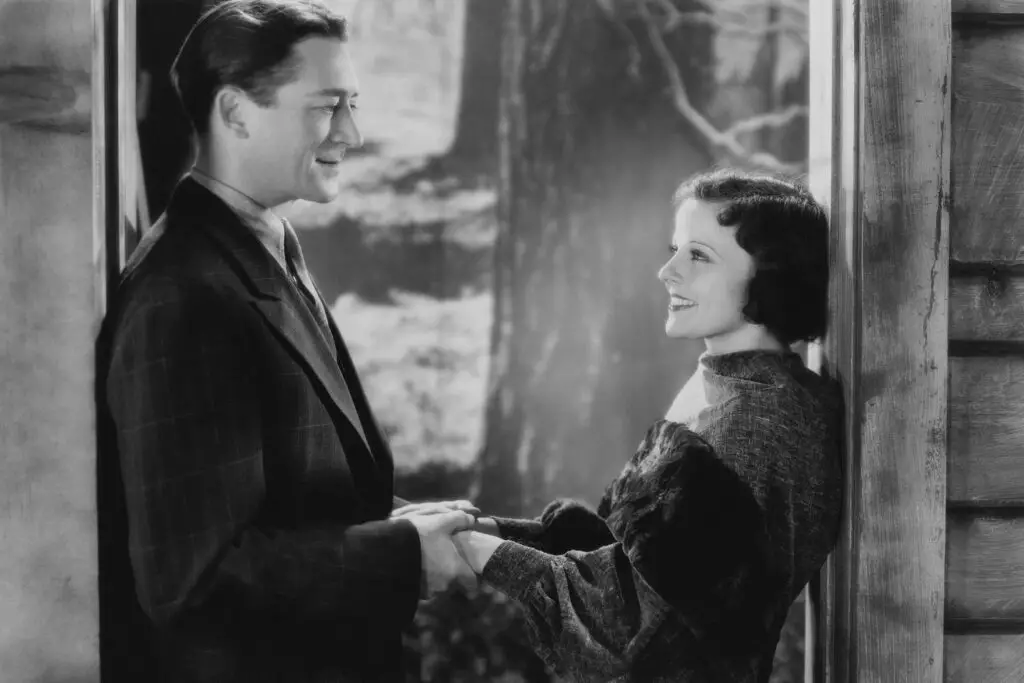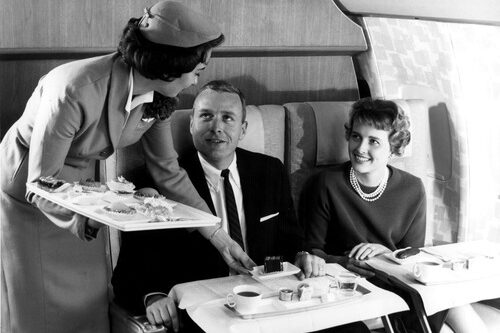1. Always Addressing Adults as “Mr.” or “Mrs.”

There was a time when calling an adult by their first name was practically unheard of unless they explicitly told you to. Children were expected to say “Mr.” or “Mrs.” followed by the last name, and anything less was seen as disrespectful. Even close family friends or neighbors were given a formal title, often with a “Miss” or “Aunt” thrown in for good measure. This rule wasn’t just about respect—it was a way to reinforce hierarchy and proper manners. Parents would even correct their kids in front of others if they slipped up. Today, first-name basis interactions are much more common, even in workplaces and formal settings. Some people still prefer a title, but the strictness around it has definitely faded says Southern Living.
That said, this rule isn’t completely gone—some regions and families still uphold it. In the South, for example, it’s common for kids to say “Miss Lisa” or “Mr. John” as a middle ground between formal and friendly. But in many places, kids call adults by their first names without a second thought. It’s less about being “raised right” and more about changing social norms. If anything, today’s etiquette focuses more on tone and attitude rather than formal titles. As long as kids are polite, most people don’t mind what they’re called. Still, a few people will always bristle if they aren’t addressed with the respect they expect adds MSN.
2. Never Showing Up Empty-Handed

Bringing a little something when visiting someone’s home was once a non-negotiable rule of good manners. Whether it was a bottle of wine, a dessert, or a simple bouquet of flowers, showing up empty-handed was considered rude. It didn’t matter if it was just a casual dinner—offering a small gift was a way to show appreciation for the host’s effort. This expectation was especially strong for dinner parties and holiday gatherings. Forgetting to bring something could earn you a reputation for being thoughtless. Some hosts even had a stash of last-minute gifts just in case a guest brought them something unexpected shares Good Housekeeping.
Today, this rule is much looser, and many people don’t think twice if a guest arrives without a gift. While it’s still appreciated, hosts are often more focused on the company than the gesture. Potlucks have also changed the landscape—many gatherings now involve guests bringing assigned dishes instead of a host gift. That being said, if you’re attending a formal dinner or staying overnight at someone’s home, a small token of gratitude is still a good idea. Even a handwritten note can go a long way. It’s not about the item itself but the thought behind it says Business Insider.
3. Writing Thank-You Notes for Everything

Once upon a time, if someone gave you a gift, a thank-you note was expected—no excuses. It wasn’t enough to say “thank you” in person; you had to sit down, write a heartfelt message, and mail it. Parents drilled this into kids from a young age, making them send thank-you notes after birthdays and holidays. It showed appreciation, effort, and good upbringing. Even small gestures, like a dinner invite or a favor, sometimes warranted a handwritten note. If you skipped this step, you risked seeming ungrateful or even rude.
These days, a text or email is usually enough, and sometimes even just a spoken “thank you” will do. People are busier, and handwritten notes have become more of a nostalgic touch than an expectation. However, they do still hold weight for special occasions, like weddings or big gifts. Many older generations still appreciate receiving them, and some people enjoy the personal touch of a physical card. While it’s no longer a strict etiquette rule, sending one can still make you stand out in a good way. After all, who doesn’t love getting a little thoughtful note in the mail?
4. Men Always Walking on the Curbside of the Sidewalk

There was a time when a true gentleman would always position himself on the curbside of the sidewalk while walking with a woman. This wasn’t just a chivalrous gesture—it was a practical one. The idea was that men should protect women from splashes, runaway carriages, or anything else that might come flying off the road. It was an unspoken rule, and a man who didn’t follow it might be judged as lacking manners. Some even went so far as to switch sides mid-walk if they turned a corner. This rule extended to other protective gestures, like opening doors and carrying heavy bags.
Nowadays, most people don’t think twice about which side of the sidewalk they’re on. Cars are less likely to send muddy water flying, and people generally see men and women as equals when it comes to personal safety. While some still appreciate old-fashioned chivalry, many find these rules outdated or unnecessary. Women often prefer to walk wherever they’re comfortable rather than being subtly guided to a “safer” position. However, acts of kindness—like holding the door or offering a hand when needed—are still valued. It’s less about rigid rules and more about basic courtesy.
5. Standing When a Lady Enters the Room

Back in the day, standing up when a woman entered the room was a clear sign of respect. It wasn’t just about politeness—it was a way to acknowledge her presence and show good manners. Men, in particular, were expected to rise from their seats whenever a lady arrived or left. This rule extended to other situations too, like standing when shaking hands or when an elder entered the room. Not doing so could be seen as rude or lazy, especially in formal settings. Schools and military institutions even taught this as standard etiquette.
Today, this practice has almost completely faded. Most people don’t expect anyone to stand just because they’ve walked into a room. It can even feel awkward in casual settings, where standing up might seem over-the-top. That being said, rising for introductions or out of respect for elders is still considered good manners. Some traditions hold onto this rule, especially in certain professional or military circles. But in everyday life, it’s mostly a thing of the past. People are more focused on genuine interactions than on following rigid social codes.
6. Keeping Elbows Off the Table

This one has been drilled into kids for generations—elbows on the table were an absolute no-go. The reasoning behind it varies, but many believe it stemmed from a time when shared tables were unstable, and leaning on them could be disruptive. Others say it was simply about maintaining good posture and looking presentable while eating. Whatever the case, a child caught breaking this rule would likely get a sharp reminder from their parents. It was a sign of being well-mannered and raised properly.
Today, most people don’t enforce this rule as strictly. While keeping elbows off the table during a formal dinner might still be expected, casual meals are much more relaxed. People are more concerned about good conversation and enjoying their food than whether someone’s leaning a bit. That said, in certain settings—like fancy restaurants or business dinners—it’s still a good idea to be mindful of posture. While it’s no longer a dealbreaker, it’s one of those old etiquette rules that some still quietly judge. And if you’re dining with Grandma, it’s best not to push your luck.
7. Dressing Up for Travel

There was a time when getting on a plane or even a train meant dressing to impress. People would wear their Sunday best—men in suits, women in dresses and heels. Travel was seen as a luxury, and looking presentable was a way to show respect for the occasion. It wasn’t just about fashion; it was considered a sign of class and good manners. Airline staff even expected passengers to look polished, and some restaurants in airports had dress codes. Rolling up in sweatpants and flip-flops would have been unthinkable.
Now, comfort is king when it comes to travel. Most people opt for leggings, sneakers, or even pajamas for long flights. Airports are filled with people in hoodies and backpacks rather than tailored suits and fancy hats. Some still enjoy dressing up, especially for first-class travel, but it’s no longer expected. The shift toward casual wear reflects the way travel has changed—it’s more accessible and less of a special event. While dressing nicely can still earn you a little extra respect, no one will bat an eye if you prioritize comfort instead.
8. Not Talking About Money

Discussing money—whether it was your salary, expenses, or financial troubles—used to be a major faux pas. It was considered tacky to ask someone how much they made or to brag about wealth. People kept financial matters private, and even within families, money talk was often avoided. The idea was that discussing finances was either boastful or inappropriate, especially in polite company. If someone asked directly about income, they might be met with a vague response or a change of subject. Money was something you just didn’t bring up unless it was absolutely necessary.
Today, people are much more open about financial matters. Conversations about salaries, budgeting, and even debt are more common, especially among younger generations. There’s been a push for financial transparency, particularly in the workplace, where salary discussions can help fight wage gaps. Social media has also played a role, with people openly sharing their money habits and investment tips. While it’s still rude to flaunt wealth or pry too much, financial conversations aren’t as taboo as they once were. Instead of being a sign of bad manners, discussing money can actually be empowering.
9. Waiting to Eat Until Everyone Is Served

Not too long ago, it was considered extremely rude to start eating before everyone at the table had their plate. The proper thing to do was wait until the host took the first bite or at least until everyone had been served. It was a sign of patience and respect, and digging in too soon could make you look selfish. Even kids were taught to wait, no matter how hungry they were. In formal settings, there were even more rules—like not reaching for the bread basket first or only starting after a toast.
These days, this rule is a little more relaxed. While it’s still polite to wait, people aren’t as strict about it, especially in casual gatherings. If you’re at a big table and the food is getting cold, most hosts don’t mind if you start eating. Some even encourage it, saying, “Go ahead while it’s hot!” That said, in fancy restaurants or formal events, waiting is still the proper thing to do. It’s one of those etiquette rules that depends on the situation, but overall, people are less likely to judge you for sneaking a bite early.
10. Answering the Phone with a Formal Greeting

There was a time when answering the phone required a certain level of formality. People would pick up with a crisp “Hello, this is [Name],” or even “Smith residence, how may I help you?” It was a small way of showing courtesy and setting a polite tone for the conversation. Businesses, of course, had even stricter rules, with operators trained to answer calls professionally. Even at home, kids were taught to speak clearly and respectfully when answering. If you picked up the phone with a lazy “Yeah?” or “What?” you’d probably get scolded.
Now, answering the phone has become much more casual—when people even answer at all. Many calls go straight to voicemail or are ignored if the number isn’t recognized. Texting has replaced phone calls in many cases, making formal greetings feel outdated. If people do answer, it’s often with a simple “Hey” or even just their name. Businesses still keep things professional, but at home, most people don’t expect a polished greeting anymore. It’s just another sign of how much our communication habits have changed.
11. Apologizing for Everything

Saying “excuse me” or “I’m sorry” for even the smallest things used to be considered a mark of good upbringing. If you accidentally brushed against someone, you apologized. If you interrupted, you said “pardon me.” Even if you weren’t at fault, excessive politeness was encouraged. This was especially true for women, who were often expected to soften their words and avoid coming across as too direct. Being overly apologetic was seen as a way to be polite and considerate.
Today, people are more aware of how unnecessary over-apologizing can be. While it’s still important to be polite, there’s been a shift toward being confident in communication. Instead of saying “Sorry to bother you,” people are encouraged to say “Do you have a moment?” Likewise, apologizing for things out of your control—like taking up space in a crowded room—is seen as unnecessary. While manners are still valued, there’s more of a balance now. The focus has shifted to being respectful without undermining yourself.
12. Sending RSVPs for Every Invitation

If you were invited to an event in the past, responding was non-negotiable. Even for casual gatherings, you were expected to RSVP promptly so the host could plan accordingly. Ignoring an invitation or failing to reply was considered incredibly rude. It wasn’t just about headcount—it was a way to show respect for the person inviting you. Some people even sent handwritten RSVP cards for weddings and formal events. Flaking at the last minute without notice was unheard of.
These days, RSVPs are often overlooked, especially for casual events. Many people assume a lack of response means someone isn’t coming, rather than waiting for a confirmation. Digital invites have also changed things—people might click “Going” on an event page but never actually show up. Hosts often have to follow up multiple times to get a final headcount. While RSVPing is still important for big events, it’s become much more relaxed for everyday gatherings. Some would argue that this shift has made planning more difficult, but it’s just the way things have evolved.
13. Keeping Political and Personal Opinions to Yourself

There was a time when discussing politics, religion, or anything deeply personal was a major social no-no. These topics were considered too divisive, and polite conversation steered clear of anything that could cause tension. People stuck to neutral topics like the weather, sports, or family updates. Even at the dinner table, debates were discouraged in favor of keeping things pleasant. Those who ignored this rule risked being seen as rude or confrontational.
Now, open discussions about politics and personal beliefs are everywhere. Social media has made it normal to share opinions freely, and many people feel that staying silent is worse than speaking up. While some still prefer to avoid heated topics at family gatherings, others believe that discussing important issues is necessary. The shift toward open conversation has led to both meaningful discussions and plenty of arguments. Whether this change is good or bad depends on who you ask, but it’s clear that the old rule of “keep your opinions to yourself” is no longer the standard.
